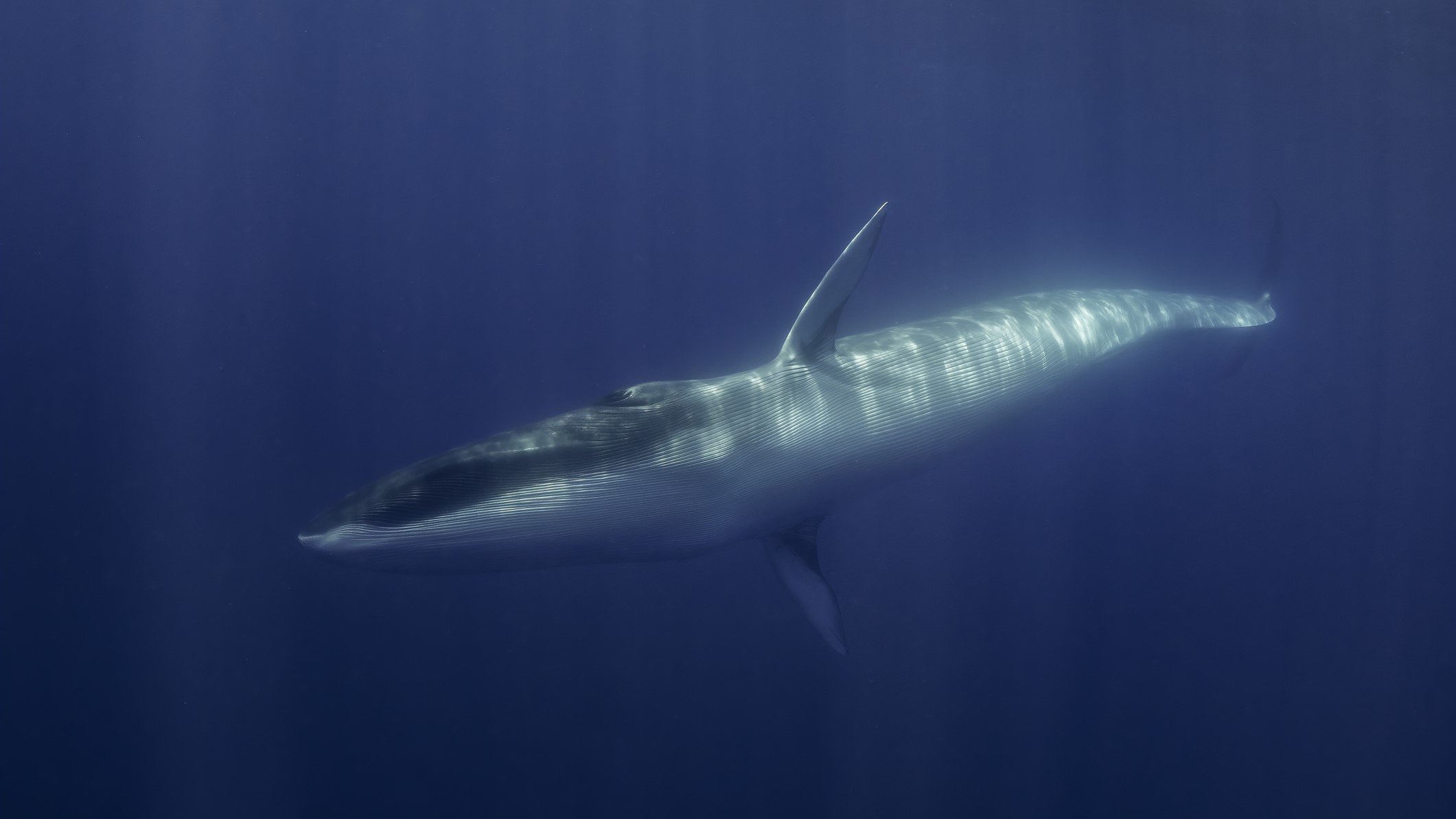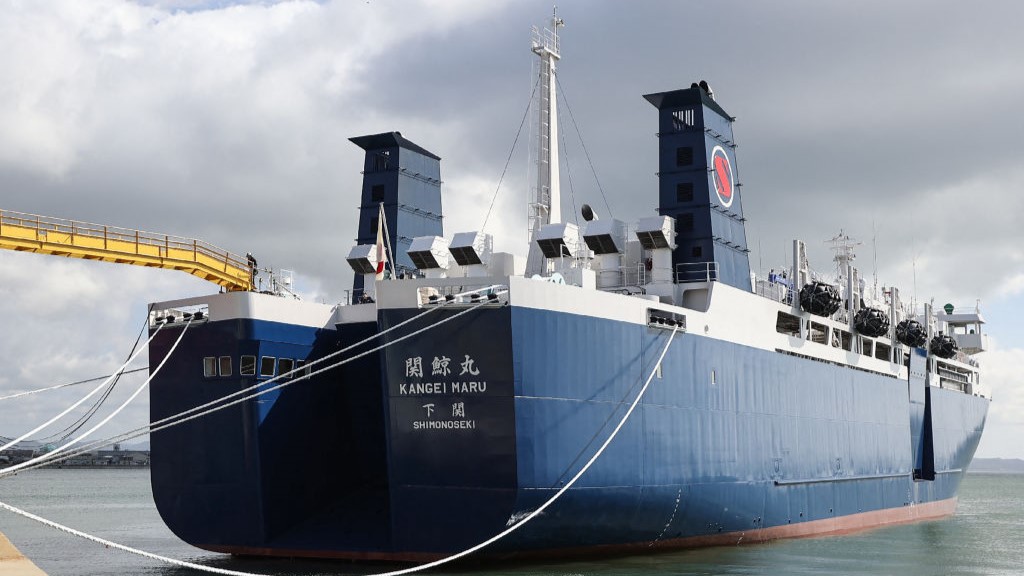
Japan's commercial whaling activities could soon expand to include fin whales, government officials announced last week.
The move, which experts have heavily condemned, would increase the number of whale species Japan hunts in its territorial waters to four; the other three species are the Bryde's whale (Balaenoptera edeni), the sei whale (Balaenoptera borealis) and the minke whale (Balaenoptera acutorostrata).
For now, it appears the decision to include fin whales hinges on public approval of changes to the country's marine resource management policy, according to the marine conservation organization OceanCare.
The fin whale (Balaenoptera physalus) is the second-largest whale species on Earth, after the blue whale (Balaenoptera musculus). Fin whales are named for the distinctive fin that protrudes from their lower back, and they can grow up to 85 feet (26 meters) long. They are found across all the world's oceans. In the first half of the 20th century, however, fin whale populations nose-dived due to commercial whaling and they are still recovering from the shock, according to the International Whaling Commission (IWC), which regulates modern whaling practices.
In 1982, the IWC introduced a moratorium on commercial whaling that went into effect in 1986. Although Japan stopped commercial hunts after 1986, the country resumed taking whales for what it said was scientific research one year later. In 2019, Japan withdrew from the IWC and began catching whales commercially once again, although its whaling activities are now restricted to the country's territorial waters in the North Pacific Ocean.
On May 9, officials announced that Japan could start hunting fin whales soon. "Whales are important food resources and should be sustainably utilized, based on scientific evidence," Yoshimasa Hayashi, Japan's minister for foreign affairs, said at a news conference.
According to the IWC's most recently published whaling data, Japan took 25 sei whales, 187 Bryde's whales and 58 minke whales in 2022. In recent years, the country has also imported fin-whale meat from Iceland, according to OceanCare.

The International Union for Conservation of Nature (IUCN) lists fin whales as vulnerable to extinction globally, although the species was still listed as endangered as recently as 2018 and is considered as such under the Endangered Species Act of 1973. However, there is insufficient data to pinpoint the status of local populations in the North Pacific, according to the IWC.
Without reliable population estimates, Japan's move to hunt fin whales is an "appalling step backward" for ocean protection, Clare Perry, a senior adviser at the Environmental Investigation Agency (an international NGO that investigates environmental crime and abuse), said in a statement.
"Fin whales are one of Earth's great carbon capturers and should be fully protected, not least so that they can continue to fulfill their critical role in the marine environment," Perry said.
The announcement comes after Japan unveiled a brand-new whaling "mother ship" in March. The factory ship, called the Kangei Maru, can handle and process large whales, including fin whales, "which could tie Japan into decades more of this destructive, unsustainable, inhumane and outdated industry," Perry said.
Whether or not Japan goes ahead with its plans to hunt fin whales depends on the outcome of a public consultation of the country's newly drafted whaling policy — but it seems likely the changes will be approved, according to OceanCare.







